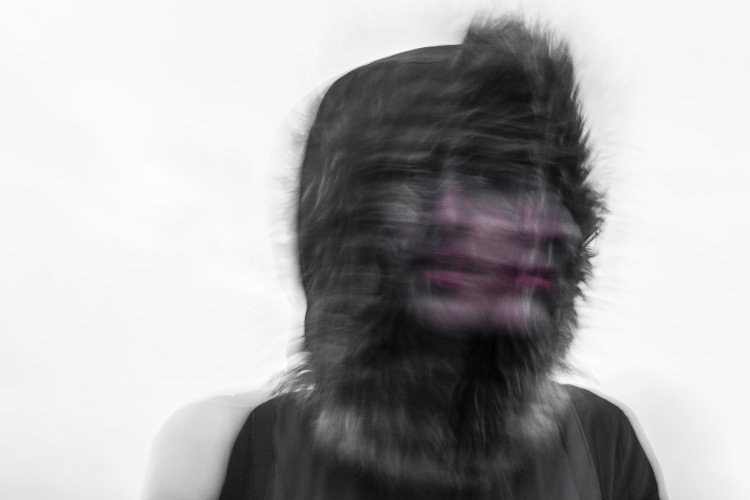


Bipolar disorder is a serious condition that requires expertise, screening, and attention. D’Amore Healthcare treats bipolar disorder in a structured environment that promotes stability and self-efficacy. Our nationally-recognized, licensed residential mental health treatment center in Orange County will give you a new formula for stress relief and decision-making.
D’Amore can give you the tools you need to live a productive life and enjoy rewarding relationships. Our well-trained, licensed therapists take your entire physical, social, and psychological history into account when designing a tailored plan that’s right for you. As a result, many of our patients achieve a new sense of self-awareness and control over their bipolar disorder condition.

Our well-trained therapists and clinicians develop comprehensive plans with a variety of therapeutic services, helping bring balance into our patients’ lives. Our residential-inpatient mental health center gives clients an atmosphere where they can comfortably practice new coping mechanisms and talk through life’s challenges.
D’Amore Healthcare is an Orange County mental health treatment center, welcoming adult men and women. We specialize in intervention, acute stabilization, and residential treatment of bipolar disorder. We are a Joint Commission-accredited, licensed facility located in Orange County, California.
Bipolar Disorder, a mood disorder, can have dramatic effects on a person’s mood, energy levels, and behavior. Thankfully, these symptoms are highly treatable.
There is no cure for bipolar disorders, but proper therapy, education, behavioral changes, and medication can help one live comfortably. At our Orange County Residential Psychiatric Treatment Facility, we provide a full spectrum of therapeutic methods so that our patients can find the right program to treat their symptoms.
In managing bipolar disorder, it’s crucial that one continues practicing healthy coping mechanisms and takes their medication (if needed). Even if symptoms remain dormant for years, the patient may still be at risk for a manic or depressive episode, especially if a person regresses into unhealthy behaviors.



Bipolar disorder is a serious mental disorder that causes changes in mood, energy, concentration, and often the ability to fulfill obligations. Individuals with this disorder are prone to manic mood episodes and depressive mood episodes. These emotional highs and lows can last for weeks, even months at a time.
Bipolar disorder generally develops in the late teens and early twenties, though it can emerge at any age. Symptoms may worsen over time, though proper treatment and coping mechanisms can help one manage their symptoms and development of the illness.
The National Institute on Mental Health reports that an estimated 4.4% of adult people in the United States will experience Bipolar Disorder in their lifetime. People with bipolar disorder have a significantly increased risk of other health conditions, including obesity, nutritional deficiency, autoimmune diseases, substance use disorders(requiring addiction treatment), to suicide.
An estimated 30-40% of individuals with this disease report self-harming of some sort. Twenty percent of those who spend a lifetime struggling with the disease commit suicide.
If you or someone you know is suffering from bipolar disorder, please get help immediately.
People with this type may experience manic episodes lasting around a week and depressive episodes that last roughly two weeks. Manic episodes in this type are sometimes accompanied by psychosis due to severe mania. During these manic stages, the person with bipolar I may appear healthy and happy to friends and family members. The severe depression seen in bipolar I may be more noticeable by loved ones. However, the extremely elevated mood in manic episodes can also be detrimental to one’s mental health as well.
This type of bipolar disorder causes a milder form of mania during manic periods — hypomania — which usually lasts four days. It is also marked by major depressive episodes that last about two weeks.
This disorder, also called Cyclothymia, produces shorter and less intense manic and depressive episodes. Between these highs and lows may be months of stable moods. These shorter-acting mood shifts may be less obvious, though the disorder still deserves proper care.
People with bipolar disorder with mixed features will experience a few depressive symptoms during their manic or hypomanic episodes, and vice versa. It’s confusing and seemingly contradictory, so those observing may not be aware of mood shifts. One mood state may dominate over another in a mixed episode, and these symptoms may appear more frequently than in other bipolar disorders. With this comes a greater risk of psychosis and a harder time finding an effective treatment plan.
If someone close to you is suffering from a bipolar disorder, you may want to guide them towards treatment. It’s always a tough conversation, though proper treatment can help everyone directly and indirectly affected by the condition.

The four types of disorders are Bipolar I, Bipolar II, Cyclothymic Disorder, and “Mixed Features.” All types experience manic (or hypomanic) episodes and depressive episodes. The differences between them are periods of episodes and frequency as well as the severity of each episode.
The main difference seen between the two types is severities in their manic episodes. A person with Bipolar I experiences full manic episodes. The Bipolar II person experiences hypomanic episodes that are less severe and less noticeable. The similarities between the two types are seen in their Depressive Episodes.
Researchers are exploring specific genes to find patterns in abnormalities, though there is no known single cause for bipolar disorder. However, Bipolar Disorders tend to run in families, so they believe there are genetic predispositions. It is thought that environmental factors provoke these bipolar predispositions.
Jobs with structured routine work may be most suitable for someone with Bipolar Disorder. Examples of routine work include accounting, driving, clerical work, and teaching. Jobs with extreme ups and downs, like sales or stock market jobs, may trigger episodes more frequently. It’s also a good idea to have consistent hours and avoid night shifts.
It isn’t necessary to tell your boss about your Bipolar Disorder. However, if bipolar episodes cause problems in the workplace (i.e. performance issues), it may be a good idea to explain your condition to your superiors. After a discussion, you might notice your coworkers being more sympathetic, helpful, and understanding.
Start by learning more about Bipolar disorder, and try to be understanding of the person who has it. Reassure them your support and follow-through by being actively involved in their treatment and plan for improvement. However, be patient and not pushy. Remember care of yourself and use your resources to do so.

Valerie has worked in the medical field for over 8 years and the past 4 years has worked in mental health as a school counselor at an elementary school, therapist at a nonprofit for women and children and a therapist at nonprofit working with homeless adults who suffer from Schizophrenia and Bipolar. Valerie received her MSW at USC and is currently working towards her LCSW.




















